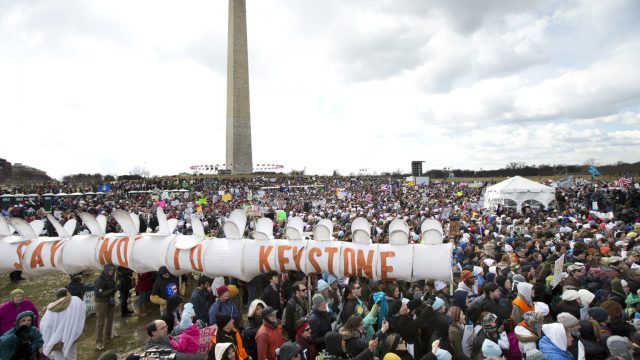Keystone Delays May Push More Oil To Rail

We’re having a debate about the safety of oil by rail shipments here in America. Domestic oil production has surged, and pipeline infrastructure has not kept pace. The result has been an explosion in oil by rail shipments, some of which have resulted in explosive train derailments.
Many – including this observer – have argued that roadblocking pipeline infrastructure (most notably the now-notorious Keystone XL pipeline) has exacerbated this problem. By way of illustrating just how true that criticism is, consider that TransCanada is now considering rail as an alternative to their much-delayed pipeline:
May 21 (Reuters) – TransCanada Corp is in talks with customers about shipping Canadian crude to the United States by rail as an alternative to its Keystone XL pipeline project that has been mired in political delays, Chief Executive Russ Girling said on Wednesday.
“We are absolutely considering a rail option,” Girling told Reuters on the sidelines of a conference in New York. “Our customers have needed to wait for several years, so we’re in discussions now with them over the rail option.”
The comments are the first to confirm growing speculation that TransCanada might use more costly and controversial railway shipments as a stopgap alternative to the Keystone XL pipeline, whose approval has been delayed by the U.S. government.
What’s ironic is that the opponents of the Keystone pipeline use safety as part of their argument against it. They warn about leaks and other possible issues with the pipeline. But the real-world impact of their activism is to push the oil onto riskier means of transportation.
Like rail.
Which isn’t to say that rail is unsafe – the railroads need to fix some issues with the DOT-111 tanker car – but it’s certainly more of a risk to public safety than pipelines.




